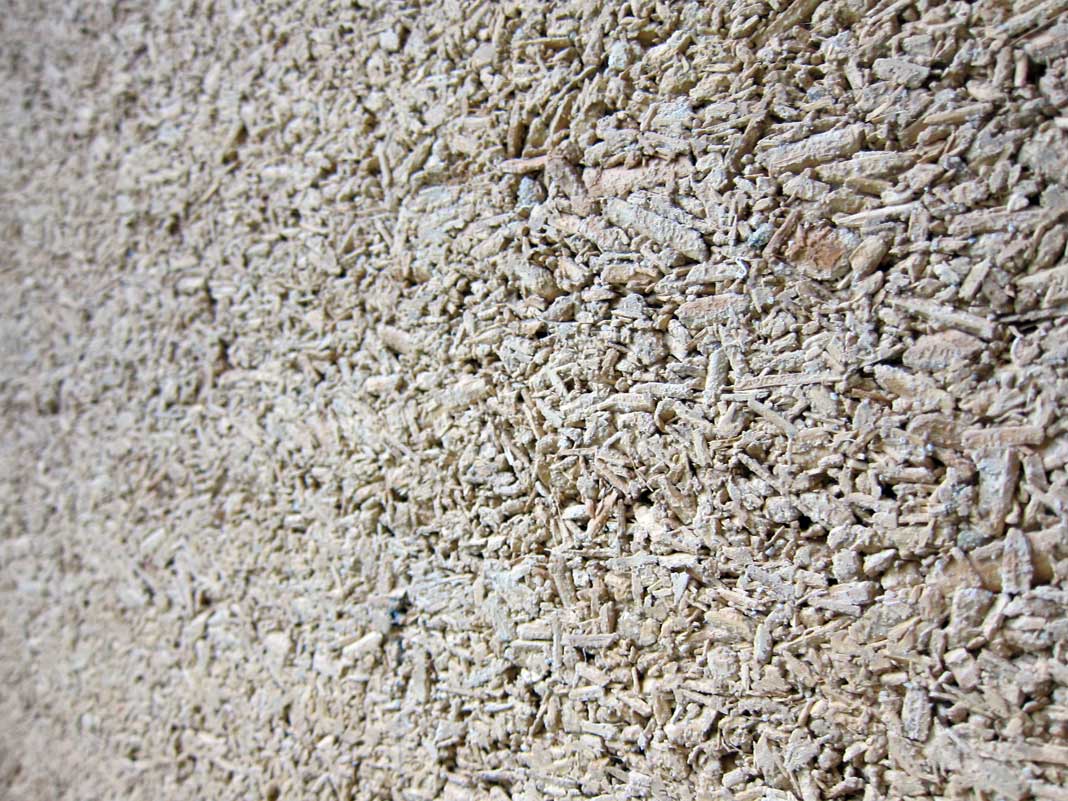Is there anything hemp can’t do? Seriously, the list of usages is ridiculous, from petrol to clothing. But I want to talk through hemp concrete today, how it can be made from home and what you need to know beforehand.
What Is Hempcrete?
Hempcrete is a bio-composite material that is used in construction. The result is a natural and airtight insulation, while it was mainly used in France during the 90’s for non-weight bearing infill walls.
How Do You Make Hempcrete?
You will need four parts hemp hurd, one part water and one part lime binder. The hemp hurd, also commonly called shives, is a lightweight, fire resistant agricultural product produced from hemp.
You will also need a large industrial bucket, as well as some form of stirring item (this could simply be a big stick), or you can use a cement mixer if you have access to one.
The hemp hurd is mixed with the lime binder and then the water can then be added. The hempcrete is constructed on-site.
How Long Does Hempcrete Last For?
Some articles state that it can last hundreds of years, while others state it can last for thousands of years, either answer is positive, while it’s also inexpensive and non-toxic when cured. You should obviously protect the hemp blocks with a finish to ensure it doesn’t degrade.
How Long Does It Take To Set?
While it will appear to be instantly setting, this is actually the moisture leaving, but it will remain soft and will take around 2 days to properly set.
Of course, if you have some bad weather then this can affect how long it takes. Just the same, if you have made the mixture too wet then this could delay how long it takes to set.
What Are The Benefits Of Hempcrete?
Below are the main benefits to using hempcrete instead of traditional options:
- Hemp concrete is a more breathable material to traditional options
- Humidity can be effectively regulated, which can be especially useful if you live in an area with high levels of humidity
- Considering how lightweight they are, the energy used to transport them is significantly reduced
- The thermal mass of the hempcrete allows for a steady temperature
- The insulation should gain strength over time
- Hempcrete is considered a non-flammable material, withstanding direct fire for over 2 hours
- It’s bio-based and can easily be recycled at the end of its lifespan
- It’s a highly breathable material, meaning any moisture should evaporate and you shouldn’t suffer from mould
What Are The Issues With Using Hempcrete?
- The compressive strength is measured at around 1-3.5MPa, which is significantly less than concrete, hence why it isn’t used for heavy load bearing
- In the UK, this isn’t commonly used, meaning not all builders and architects have experience with hempcrete
- Concrete is readily available, whereas hemp can be more difficult to get hold of.
- Hempcrete walls tend to be thicker than a normal wall, meaning you actually have less space in your home
- It can’t be used for foundations and footings due to the fact that it easily absorbs moisture and can’t be load bearing
How Strong Is Hempcrete?
As previously mentioned, hempcrete can reach 3.5MPa, but more commonly it is around 1MPA, which is a fraction of concrete, making it unusable for foundations or footings.
This shouldn’t be too much of an issue, as most people are looking at this for insulation. It also doesn’t crack easily thanks to the low density.
Can You Build A House Made From Hemp?
It is completely possible, but it might not be feasible for the average house buyer. The Dun Agro Hemp Group had a house built made completely from hemp, 250km from Amsterdam.
As you can imagine, hempcrete was pivotal to the creation, while it was naturally dried over a 3 month period, while one cool quote they made it that it is ‘earthquake resistant’, which offers huge opportunities in certain parts of the world where these are more commonplace.
Is Hempcrete Expensive?
While this has the potential to be a much cheaper option, it simply isn’t at the moment. The issue is that it isn’t commonplace yet and the materials cost more, but many argue that it might be cheaper in the long term.
Also, prices will decrease over time as access to hemp increases. Currently, the price per square metre for hempcrete is around £110, compared to £85-90 for concrete. The difference doesn’t look substantial, but it quickly adds up. This works out at around 29% extra, which most people won’t be comfortable paying.



